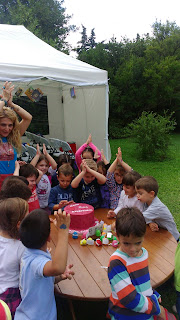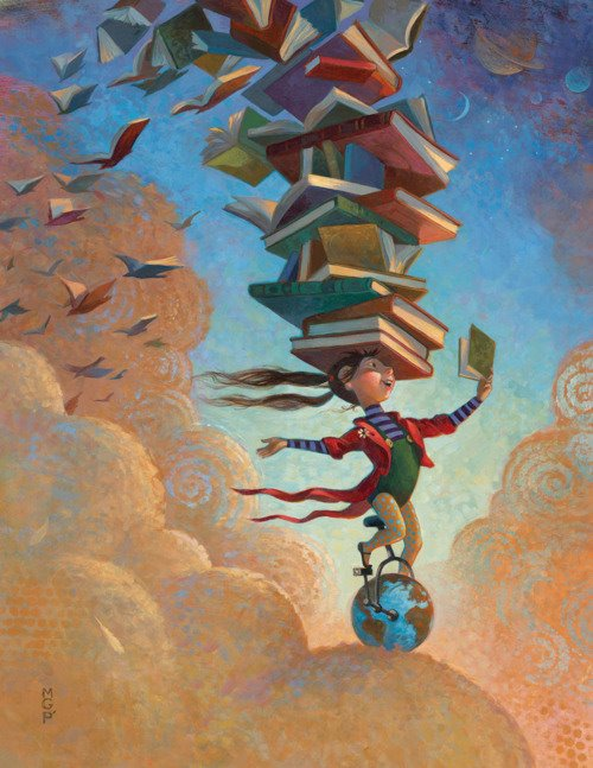Ο Άλι από τη Σενεγάλη
Πέμπτη απόγευμα γύρω στις 6.00 μ.μ. Πλατεία Νέας Σμύρνης, πολύβουο μελίσσι. Σκοτεινό ακόμα το πολιτιστικό κέντρο «Γαλαξίας», μια και οι εκδηλώσεις ξεκινάνε συνήθως κατά τις 7.00, απ’ ό,τι σε ενημερώνει η τοιχοκολλημένη απ’ έξω μέσα στη βιτρίνα αφίσα. Απέναντι από την είσοδο του «Γαλαξία» το suis generis μπιστρό με τα cupcakes και τις σπιτικές λεμονάδες, ενώ ακριβώς στην αντίπερα όχθη της πλατείας παραταγμένα τα καφέ που αποτελούν τα στέκια της εν αναβρασμώ νεολαίας. Μαμάδες με καροτσάκια, νεαρές άρτι αφιχθείσες από το γυμναστήριο με την αθλητική τους περιβολή, ζευγάρια απροσδιορίστου ηλικίας πιασμένα από το χέρι, απορροφημένα στο δικό τους μικρό κόσμο της δικής τους μοναδικής συζήτησης. Ζηλεύεις; Ναι, ίσως λίγο ζηλεύεις. Μα όχι κακότροπα και μοχθηρά. Ζηλεύεις με αυτή τη ζήλεια που πλημμυρίζει τη γεμάτη πόθο καρδιά για επικοινωνία και σκέφτεσαι τι τυχεροί που είναι οι άνθρωποι όταν την έχουν.
Θα αναρωτηθείς ίσως εσύ τώρα αγαπημένε μου αναγνώστη: Μα καλά; Εσύ; Εσύ δεν την έχεις; Ξέρεις τι δεν έχω και το καταλαβαίνω τώρα; Τώρα που κοιτώ αυτούς τους ανθρώπους πιασμένους χέρι με χέρι; Δεν έχω το χρόνο –ακόμα και αν το έχω– να το χαρώ. Μα γιατί; Γιατί είμαι βλάκας. Είμαι ένας βλάκας που τρέχω από το πρωί μέχρι το βράδυ να γεμίσω όλα αυτά τα κουτάκια που ανοίγουν τα Πρέπει της καθημερινότητάς μου. Γι’αυτό. Γι’αυτό και σήμερα έκανα κοπάνα. Έκανα μια μικρή κοπάνα από αυτόν τον αγώνα δρόμου και πριν γυρίσω σπίτι σταμάτησα στην πλατεία. Έτσι για αυτά τα 5 λεπτά του δικού μου κόσμου. Του κόσμου που γεμίζει από την επικοινωνία με την πλατεία την ίδια που ξυπνά και κοιμάται εδώ δίπλα στο γραφείο, το χώρο που περνώ τη μισή μου μέρα. Την πλατεία που η καρδιά της χτυπά και αναζητά τη ζεστασιά των θαμώνων της. Την πλατεία που μπορεί να μου χαρίσει το ταξίδι σε αυτόν τον κόσμο τον φανταστικό της έλλειψης άγχους, που κάθομαι με παρατηρώ και μου μιλώ σε β’ πρόσωπο ενικό.
Κάθεσαι και χαζεύεις λοιπόν. Εκεί κάπου στη μέση, δίπλα στο σιντριβάνι, ανάμεσα στις δύο πλευρές της πλατείας. Χαζεύεις. Τα λαμπερά από τη χαρά της νιότης κορίτσια ή αγόρια, παρέες σε δυάδες ή τριάδες περαστικές που αφήνουν το έντονο γέλιο ή την ηχώ της φωνής τους από τις ζωηρές συζητήσεις τους. Το βλέμμα ρουφά τη ζωή που χύνεται υπερβολικά γύρω σου σα ρέον νερό και αναπνέεις. Αναπνέεις και ξεχνιέσαι για λιγο. Φεύγει σιγά σιγά η κλεισούρα του γραφείου που ω τι σύμπτωση σε κράτησε και σήμερα λίγο παραπάνω από το συνηθσιμένο. Φεύγει η βαριά πλάκα που είχε πάλι στρογγυλοκαθίσει απρόσκλητη μέσα σου κάποια στιγμή εκεί γύρω στις 3.00 που κλείστηκες στην αίθουσα συνεδριάσεων για να βάλεις δυο μπουκιές από το φαγητό που κουβαλάς στο ταπεράκι σου κάθε μέρα. Βαρέθηκες να τρως από ταπεράκια. Βαρέθηκες να τρως μόνος, μέσα στο άγχος να προλάβεις στο μισάωρο διάλλειμα φαγητού που προβλέπεται από τους εργασιακούς άτυπους κανόνες να καταλαγιάσεις την πείνα σου, να πάρεις ενέργεια και να προλάβεις κακήν κακώς να χωνέψεις, για να επιστρέψεις στο γραφείο και να συνεχίσεις την ολοκλήρωση του έργου, του υπολογιστικού φύλλου ή της έρευνας των αχρεωστήτως καταβληθέντων ποσών στους λογαριασμούς των αποθανόντων συνταξιούχων.
Και εκεί την ακούς… τη φωνή ενός ψηλού κατάμαυρου, γυαλιστερού άντρα «θέλει; Βραχιόλια, κοκαλλάκια; Έχω και γυαλιά»… χαμογελάς κατευναστικά «όχι δε θέλω σε ευχαριστώ»
Και το βλέμμα του τόσο λαμπερό όσο και το χαμόγελο σε τραβά να κοιτάξεις την πραμάτεια του την απλωμένη στο ταμπλό που κουβαλά: «να, να διάλεξε» και σου δείχνει βραχιολάκια «8 ευρώ, μόνο 8 ευρώ» και έτσι απλά ο διάλογος συνεχίζεται.
«8 ευρώ; Πολλά τα 8 ευρώ…»
«Πάρε, πάρε ζίκου ζίγκου και θα δεις. Είναι βραχιόλι τύχης, θα δεις.»
«Δηλαδή με 8 ευρώ αγοράζω την τύχη μου; και εσύ; Εσύ που τα έχεις και τα πουλάς έχεις την τύχη μαζί σου;»
«Εγώ; Εγώ τυχερός που είμαι εδώ.»
Και κείνη την ώρα κατακεραυνώνεσαι. Τυχερός που είναι εδώ, στην πλατεία. Μια πλατεία ενός προαστίου πολυπληθούς στα Νότια της Αττικής. Ξένος μέσα σε ξένους, πωλητής του δρόμου και όμως τυχερός. Που δεν ξέρει τι θα πουλήσει και πότε. Δεν ξέρει πόσα θα βγάλει το μήνα, δεν ξέρει ποιος ή τι μπορεί να τον δυσκολέψει. Και ξαφνικά σπλας πέφτει το νερό πάνω σου και ξυπνάς. Ξυπνάς από το λήθαργο της κούρασης, της κόπωσης της ψυχικής. Και συνεχίζεις.
«Πώς σε λένε; Πού μένεις; Εδώ; »
«’Αλι. Ομόνοια μαζί με φίλους».
«Και εδώ είναι το στέκι σου; Εδώ είναι το σημείο που πουλάς; Από πού είσαι; Πόσα χρόνια είσαι Ελλάδα;»
«7. Από Σενεγάλη».
«Αχά ο Άλι από τη Σενεγάλη. Λοιπόν Άλι 5 ευρώ έχω πάνω μου. Να πάρω ένα πώς το είπες;»
«Ζίκου, ζίγκου»
«Τι σημαίνει αυτό;«Ζ»
«Στα Αφρικάνικα καλή τύχη και υγεία».
Και έτσι διαλέγεις ένα μπλε και το φοράς. Βραχιόλι μακρύ με μαγνητάκια μαύρα προς γκρι που κολλάνε μεταξύ τους και μπλε πέτρες. Χαιρετάς τον Άλι, το φοράς, ξαναρίχνεις μια ματιά στην πλατεία και φεύγεις. Επιστρέφεις στ’αμάξι και παρατηρείς το χέρι που κρατά το τιμόνι πιο ανάλαφρα. Κάπως είσαι, κάπως νιώθεις. Πιο ανάλαφρα, πιο καλά, πιο τυχερά;
Το βράδυ ψάχνεις στο google να βρεις το ζίκου ζίγκου στ’ Αφρικάνικα. Δε βρίσκεις κάτι χειροπιαστό. Χαμογελάς μπροστά στην οθόνη του google translate. Τι λέγανε παλιά; Η τύχη πάει με τους τολμηρούς; Όχι φίλοι μου αγαπημένοι. Η τύχη πάει με τους ελπίζοντες. Η τύχη πάει με τον Άλι από τη Σενεγάλη που δεν ξεχνά να εκτιμά αυτό που έχει.



































